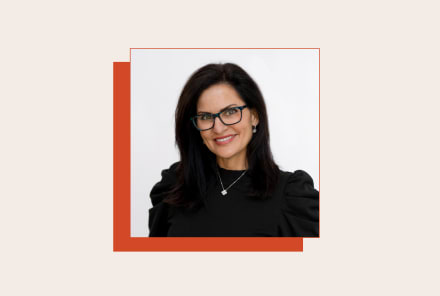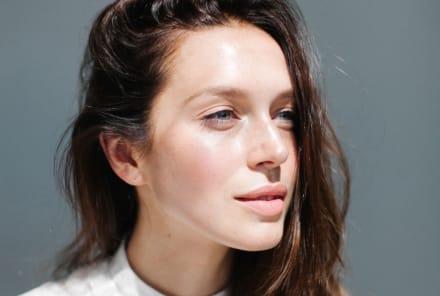Advertisement
How To Get The Most Bang For Your Buck With Plant-Based Eating, From A Nutritionist


Allow nutritionist and physiologist Simon Hill to declare: The best diet is one in which 85% of its calories come from whole plant foods (it's the very crux of his book, The Proof Is in the Plants). "In Western society, we have made animal protein the hero of the plate," he continues on this episode of the mindbodygreen podcast. "We want to flip that."
That doesn't mean you absolutely must erase all animal sources from your plate—but he does suggest de-emphasizing meat in favor of nourishing fruits and veggies. And to nudge you just a bit further: Hill also recommends hacking your eating plan to make those plants the healthiest they can be.
How do you harvest those benefits, you ask? Below, Hill offers three tips to get the most nutritional bang for your buck:
Eat a dark, leafy green salad every day.
Hill references the MIND Diet—aka, a hybrid between the Mediterranean and DASH diets—as one of the healthiest eating plans for brain health. (Other experts would agree.) "It's a super plant-based diet, and it has a real emphasis on dark leafy greens and berries for [their] carotenoids and for polyphenols," he notes.
In fact, a study conducted by Chicago's Rush University Medical Center found that of 960 participants, those who ate at least one serving of leafy green vegetables per day had brains that were operating 11 years younger than they actually were, compared to those who rarely ate those greens.
"That is a strong case for a daily salad," says Hill. "That can be a mix of arugula or rocket, spinach, or collard greens—just make a big dark leafy green salad every day." See, dark leafy greens are high in carotenoids, particularly lutein, which is why the researchers believe these greens are so brain-healthy. "We know that lutein is fat-soluble," says Hill. "So when you're having that salad, some olive oil, avocado, or nuts and seeds on it is going to help you absorb those carotenoids."
Combine foods for iron absorption.
Hill is a fan of food combining for iron absorption, specifically nonheme (or plant-based) sources of iron, which is thought to be less absorbable in the body. "There are a number of different aspects of our diet that can inhibit iron absorption or enhance it," he explains.
For the latter, he touts vitamin C as an iron-enhancing winner (and research backs it up, too1). "Adding bell pepper to your cooking, for example, which is really rich in vitamin C, can be a great food to throw into stir-fries," he offers. "Or it could be some lemon juice, it could be strawberries—all of these are really rich in vitamin C."
He also notes that garlic and onion can increase the bioavailability of nonheme iron. "If you're someone that can tolerate garlic and onion, there are quite a few studies showing that both of these will increase the iron absorption2 in your food," he adds.
Eat stressed plants, if you can.
It's an idea we've discussed before from longevity expert and Harvard geneticist David Sinclair, Ph.D.: The more stressed out a plant is, the brighter colors it will have (and the healthier it may be).
To dive into the science, a physical stress response causes plants to produce anthocyanins and polyphenols, which results in bright or dark pigments—think of a speckled stalk of broccoli or two-toned heirloom tomato. "That dark pigmentation is part of the plant's natural defense system," notes Hill, and a sign that the plant has produced potent antioxidants.
And when we consume these stressed-out plants, we're ingesting those healthy, resilient molecules as well. "These compounds that are part of the plant's natural defense system are thought to create a little bit of micro-stress in our body, and we adapt to that," he notes. "So it's actually one of the reasons we believe that organic fruits and vegetables tend to be a little higher in antioxidants and polyphenols than conventional ones...they're [forced] to fend for themselves a little more."
The takeaway.
According to Hill, getting more plants into your diet is nonnegotiable for overall well-being. That said, just introducing more fruits and veggies into your life is enough—no need to go the extra mile. But if you do want to make those plants the healthiest they can be, feel free to try out Hill's surefire tips.
Watch Next
Enjoy some of our favorite clips from classes
Enjoy some of our favorite clips from classes
What Is Meditation?
Mindfulness/Spirituality | Light Watkins
Box Breathing
Mindfulness/Spirituality | Gwen Dittmar
What Breathwork Can Address
Mindfulness/Spirituality | Gwen Dittmar
The 8 Limbs of Yoga - What is Asana?
Yoga | Caley Alyssa
Two Standing Postures to Open Up Tight Hips
Yoga | Caley Alyssa
How Plants Can Optimize Athletic Performance
Nutrition | Rich Roll
What to Eat Before a Workout
Nutrition | Rich Roll
How Ayurveda Helps Us Navigate Modern Life
Nutrition | Sahara Rose
Messages About Love & Relationships
Love & Relationships | Esther Perel
Love Languages
Love & Relationships | Esther Perel
What Is Meditation?
Box Breathing
What Breathwork Can Address
The 8 Limbs of Yoga - What is Asana?
Two Standing Postures to Open Up Tight Hips
How Plants Can Optimize Athletic Performance
What to Eat Before a Workout
How Ayurveda Helps Us Navigate Modern Life
Messages About Love & Relationships
Love Languages
Advertisement

New Study Confirms The 3 Habits That Age Your Brain Faster
Molly Knudsen, M.S., RDN
















